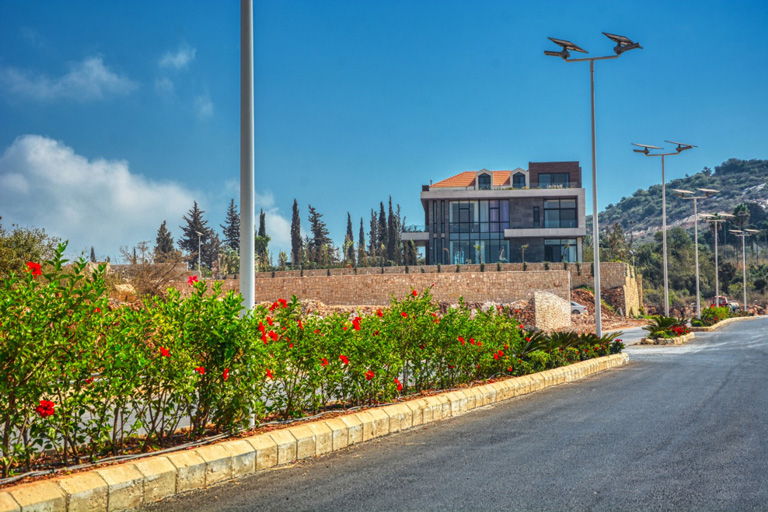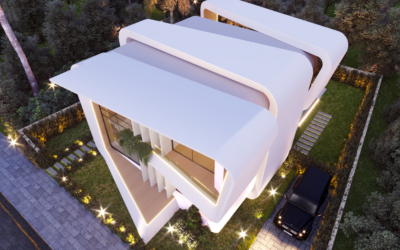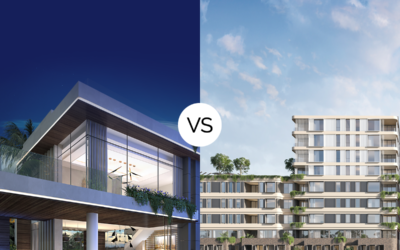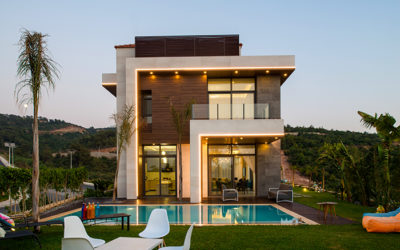It’s safe to say that for a small Mediterranean country, Lebanon has gone through a lot of changes since obtaining its independence in 1943. Going from “Switzerland of the Middle East” to “the next Greece” – with a civil war in between – through what can only be described as an economic freefall.
During the last 30 years, the nation heavily relied on 2 sectors: banking and real estate. Describing these industries as the backbone of the Lebanese economy is an understatement.
-Export.gov
The statement above remained true until a few months ago. With the revolt against a corrupt political system, the frail banking sector, along with all its loopholes, was exposed which resulted in widespread economic and social crises.
The Lebanese Economy Today
According to Trading Economics, the government debt to GDP is now at 151% and it’s expected to hit 160% by the end of 2020. Surely the banks – and the Central Bank – are not the only ones to blame but they played an integral part in this downfall.
Lebanon suffers from massive levels of poverty, inequality, lack of sustainable infrastructure, corruption, and the list (really) drag on. Add to that the weight of almost 2 million Palestinian and Syrian refugees, as well as a huge trade deficit and you, ’ve got yourself a recipe for disaster!
Nowadays, Lebanese citizens are struggling with unofficial capital control on their bank deposits, continuous devaluation of the local currency, and a decrease in purchasing power. That’s not all, thousands of companies closed down while numerous others continue to reduce working hours and/or wages.
The country is now stuck in a vicious cycle that seems to worsen by the day.
-Carnegie MEC
The collapse of the Banking System
It’s no longer weird to see long queues of people standing in front of the banks waiting to withdraw crumbs of their own money.
Reaching this point should not be a surprise to anyone keeping tabs on the financial policies that were being implemented by the Central Bank over the past two and a half decades.
The strategies followed by those entrusted with the nation’s financial security include (but certainly not limited to):
- Financial engineering: a scheme designed to source money from private banks – in other words, from regular depositors – into Banque Du Liban to ultimately sustain the country’s debt.
- High interests on deposits: offering unparalleled percentages that encouraged individuals to deposit their money instead of investing it in the economy.
- Currency peg: for far too long has the Lebanese Lira been linked to the US dollar, a procedure which was only necessary after the end of the war.
- Low to no taxes on wealth: billionaires living in Lebanon pay almost half the tax spent by their counterparts in other countries.
It’s common knowledge that banks are directly or indirectly connected to the
country’s political elite
International financial institutions keep downgrading Lebanon’s credit rating; first Moody’s followed by Standard & Poor’s. The latter expressed a negative outlook on the nation’s situation due to decreasing consumer confidence in addition to political and social unrest.

Real Estate Investments
Admitting that the real estate industry is the safest sector in Lebanon is only logical! It’s no secret that the current situation took a toll on property investments but they remain a safe haven for those who wish to ensure that their money is not lost in the banks.
Even during such challenging times, people are rushing to buy property since it’s a reliable investment; one that wouldn’t depreciate no matter what.
Luxury apartments and villas are the main targets because they offer numerous benefits. However, lower sums are spent on empty lands – anything is now safer than storing your hard-earned cash in the bank!
“Real estate cannot be lost or stolen, nor can it be carried away… it is about the safest investment in the world”
-Franklin Roosevelt
Several real estate projects, such as Ohana Hills in Damour South of Beirut, are offering amazing facilities to help investors find exactly what they need. These organizations are giving the real estate industry a ray of hope in what can only be described as a thundering crisis.
Right now, a new Prime Minister has been named and the entire nation awaits the formation of the new cabinet. The responses of the different parliamentary factions and, more importantly, the people in the streets are still not clear and somewhat divided.
The future of Lebanon remains uncertain to say the least but a solution still presents itself for those who are looking to safeguard their fortunes and at the same time invest in their beloved country.
About Ohana Hills
Ohana Hills is a Private villas complex located in Medyar District of Lebanon overlooking the Damour sea side. It presents an amazing sea view and it’s just minutes away from Beirut highway and airport
The project is composed of 77 luxury villas varying in size; each villa is private featuring its own garden and an optional private swimming pool.
The tropical village stands out from the rest by offering a unique lifestyle. It’s located on a hilltop adjacent to a country club and sports fields. It’s also minutes away from numerous beach resorts and hotels.





